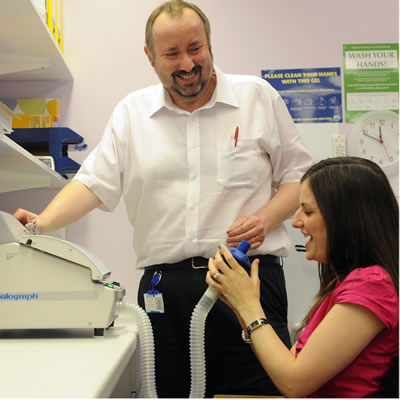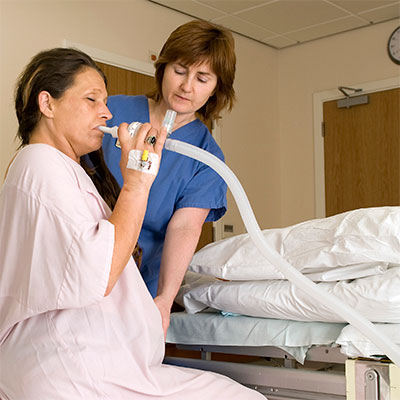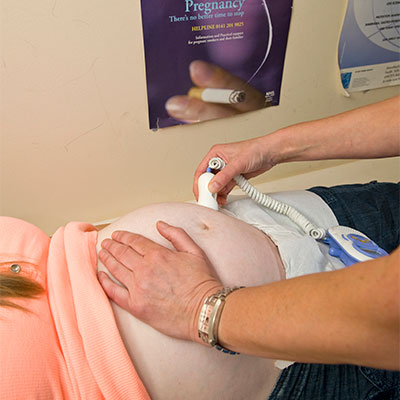
Spirometry is:
- A test to show how your lungs are working.
- One of the first tests which may be carried out to investigate any respiratory symptoms such as shortness of breath, cough or wheeze.
- Used to show if you have a lung disease.
- Used to help to separate patients with asthma from those with COPD. The test can show if your narrowing of your airways is reversible or not. This is done before and after taking medication by inhaler.
- Used to measure how much air can be quickly blown out of your lungs in 1 second (this is called your FEV1 or Forced Expiratory Volume 1).
- Used to measure the full amount of air that can be breathed out FVC or Forced Vital Capacity. (There will always be a small amount of air which remains in your lungs to prevent them from collapsing).











